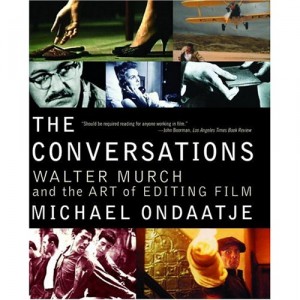Arts, Process, Edit
 In France*, cheese-making is really two processes. On dairies, milk is collected from cows, goats, or sheep, is cultured, maybe cooked, somehow molded. That is the first process. After that, an affineur takes over. The whole job of an affineur is to age cheese. Keep it at the right temperature, rotate it, maybe dust it off from time to time. When you hear about cheese caves, that’s the affineur part. In the small-producer cheese world, the affineurs are the stars, the ones whose name you would know if you worked in that industry. Pierre Androuet, Herve Mons, Marcel Petite (O the Comte from the cellars of Marcel Petite!). One affineur might get wheels from several different trusted dairies, whose names never make it on the packaging (unlike in the US, where most cheeses seem to be branded by farm/dairy).
In France*, cheese-making is really two processes. On dairies, milk is collected from cows, goats, or sheep, is cultured, maybe cooked, somehow molded. That is the first process. After that, an affineur takes over. The whole job of an affineur is to age cheese. Keep it at the right temperature, rotate it, maybe dust it off from time to time. When you hear about cheese caves, that’s the affineur part. In the small-producer cheese world, the affineurs are the stars, the ones whose name you would know if you worked in that industry. Pierre Androuet, Herve Mons, Marcel Petite (O the Comte from the cellars of Marcel Petite!). One affineur might get wheels from several different trusted dairies, whose names never make it on the packaging (unlike in the US, where most cheeses seem to be branded by farm/dairy).
So it goes with films–the editing is done by someone else, not the director or screenwriter. Walter Murch was the editor and/or sound editor (he’s the only person to win Oscars for both) of Apocalypse Now, The Godfather II, The Conversation, and many many others. His work on The English Patient acquainted him with Michael Ondaatje. The two had a series of conversations/interviews (Ondaatje is asking the questions, primarily) that are collected in a book called The Conversations: Walter Murch and the Art of Editing Film.
The book is a trove. I’ve been meaning to write about it here for over a year (!), but I’m still not all the way through it. Obviously, I’ve put it down a lot, but also I just really want to take my time with it because there is so much to learn and reflect on. I’m fascinated by how these two men, both of whose work I adore, find these nexuses between film editing and book editing. It’s a reminder of how much we as word-people have to learn from people who work in other media. The reason I started with the cheese example is that the big overarching thing the book makes me think about is the relationship between making and aging/editing/tending/revising. Below are a few passages that stood out for me. But really, you should have this book. It was assigned to me in grad school by the great Susan Bell, author of The Artful Edit, which, if a friend hadn’t made off to California with my copy, would get its own post. But with all respect to Bell and Stunk and White and the rest, The Conversations is the best writing manual (not that it’s trying to be) that I’ve ever read. So, here are some bits (O for Ondaatje and M for Murch):
M: It’s a stage in the process I call “editing with eyes half closed.” You can’t open your eyes completely, which is to say, you can’t express your opinion unreservedly. You don’t know enough yet. And you’re only the editor. You have to give everything the benefit of the doubt. On the other hand, you can’t be completely without opinion, otherwise nothing would ever get done. Putting a film together is all about having opinions: this not that, now not later, in or out. But exactly what the balance should be between neutrality and opinion is a very tricky question. The point is, if you squash this down, then you push the whole curve of the film down, whereas it might have righted itself by its own mysterious means. If you try to correct the film while putting it together, you end up chasing your own tail.
